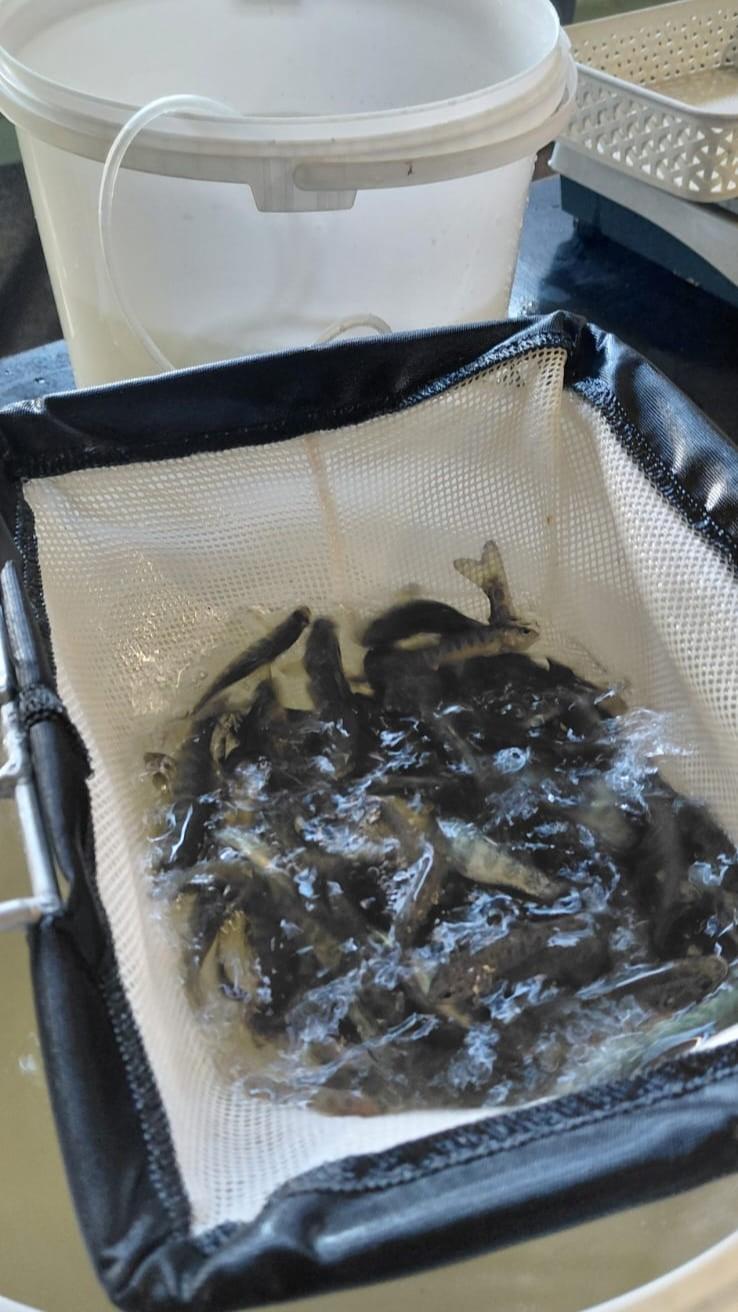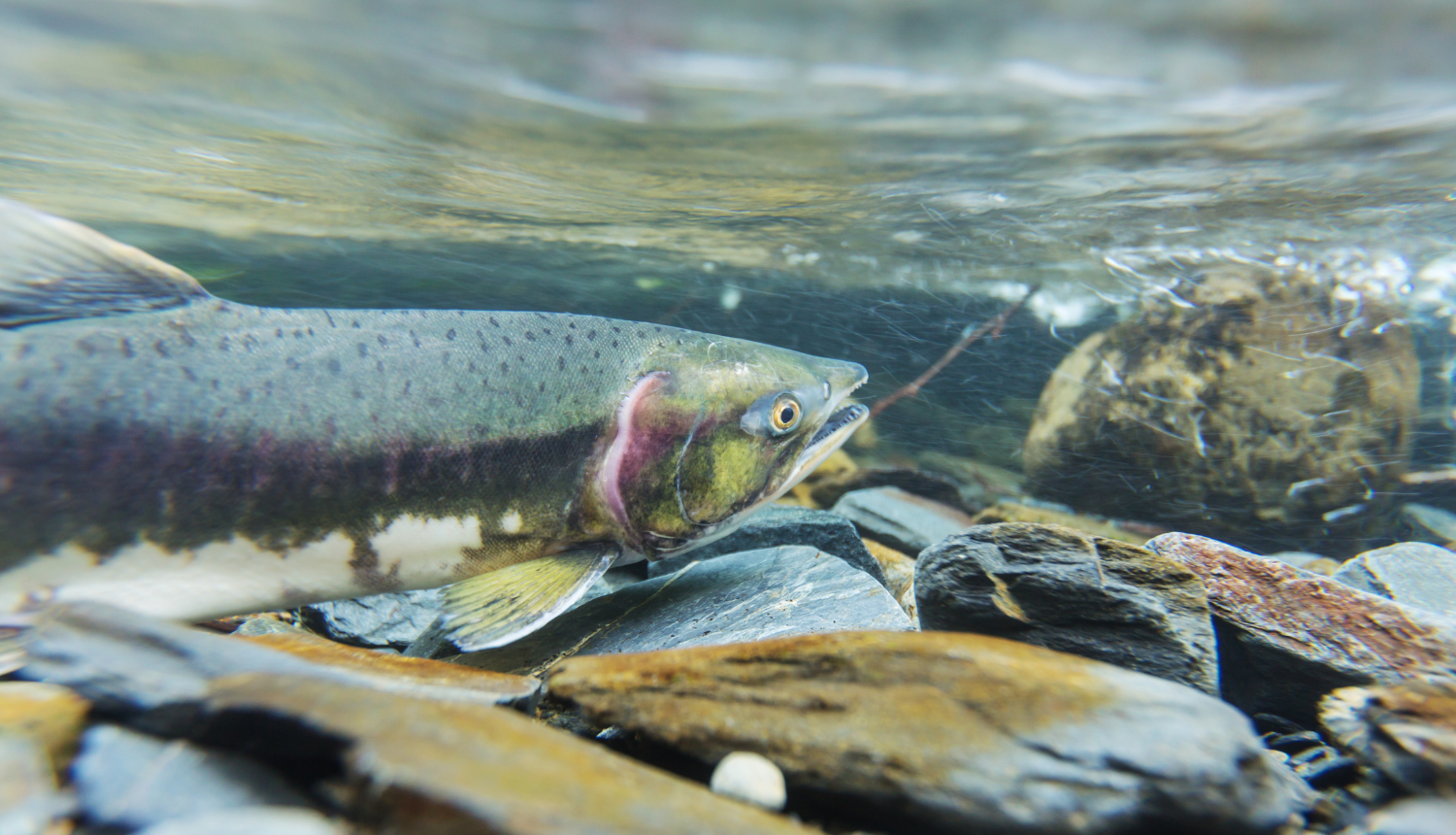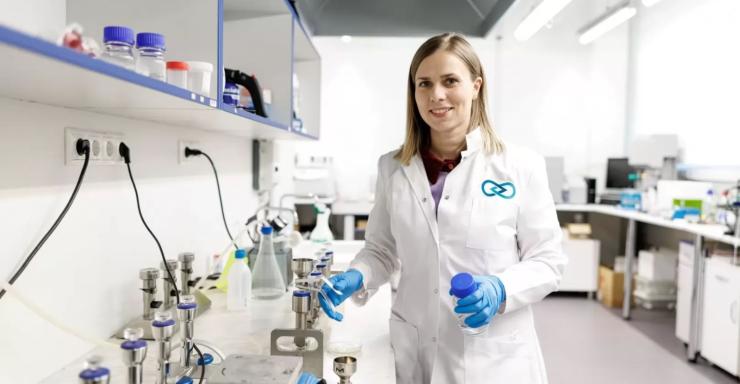Can probiotics help farmed fish grow healthier and faster? Within the framework of the SPPwelfare (INTERREG) project, researchers studied how probiotics, administered both through feed and bathing, affect the development of Baltic salmon (Salmo salar) fry at different life stages. The results show that, by carefully selecting the appropriate method of probiotic use for each developmental stage, fry mortality can be reduced by up to 20%, growth improved by 30–35%, gill necrosis decreased, and, in the case of salmon, smoltification is promoted.

During the study, the research team found that environmental temperature plays a crucial role in probiotic efficiency. The probiotics used in the project (SmartFishery, SIA Baltic Probiotics, Latvia) proved to be most effective under warmer conditions, when the water temperature was ≥15 °C.
Probiotic effects at different developmental stages:
Larval stage
In the group where larvae were bathed with probiotics, mortality decreased by up to 20% compared to the control, though growth parameters did not significantly differ.
In the group where probiotics were added to the feed, initially higher mortality was observed. However, at higher temperatures (18–20 °C), these fry were more resilient to heat stress and oxygen fluctuations in the system, and maintained feeding activity.
Fry stage
In the group where fry were bathed with probiotics, growth indicators (length and weight) were ~15% higher, and Fulton's condition factor was also higher compared to the control.
In the group where probiotics were added to the feed, no significant growth changes were found, but cases of gill cover necrosis were reduced by up to ~40%.
Presmolts
Under probiotic treatment, presmolts nearly doubled their growth compared to the control.
When probiotics were administered through feed, fish achieved the highest weight gain (+35% vs. control). When applied via bathing, the effect was slightly smaller but still substantial (+30%). Fulton's condition factor was also higher in the probiotic groups, indicating better overall health.
In RAS (Recirculating Aquaculture Systems)
Average growth did not improve, but smoltification occurred noticeably faster. It is likely that in RAS conditions, probiotics could not fully demonstrate their benefits because the water temperature was the lowest, 11 °C.
Pathogens and antibiotic resistance
Antibiotic-resistant Aeromonas and Pseudomonas species, detected at the start of the study, were no longer found after 14 days in the groups treated with probiotic baths. This observation suggests that the use of probiotics could be one possible solution for reducing antimicrobial resistance risks.
The study concluded that:
Probiotic effectiveness depends on the fish's developmental stage and water temperature.
Targeted use of probiotics in aquaculture can improve overall fish health, support growth and readiness for seawater life, while simultaneously reducing disease and antibiotic resistance risks.
Project information
The study is being implemented within the INTERREG project "Latvian–Lithuanian cooperation – improving Baltic salmon and pikeperch farming methods for sustainable, resilient, and healthy fish populations" (LL-00133, SPPwelfare).
Project story Lead project partner Programme


